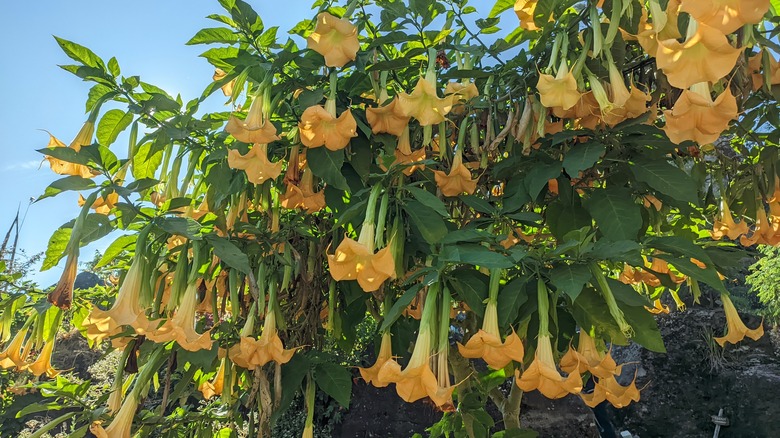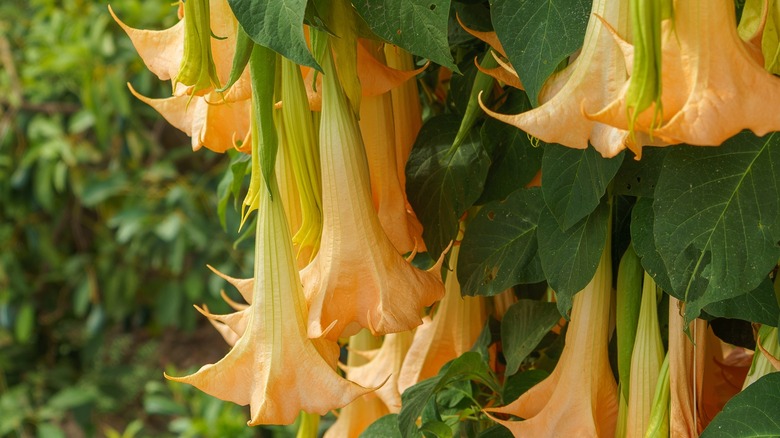Why You Might Consider Getting Rid Of This Yellow Trumpet Flower
While the large, sweetly-scented flowers of angel's trumpet (Brugmansia spp.) are very attractive, but you might want to consider getting rid of this gorgeous but toxic flowering plant in your garden. There are two reasons for this: The plant is considered invasive in some countries, and the flowers, leaves, and seeds are highly toxic, making it a perennial you don't want to see in your yard. Even though it's one of the most stunning plants that bloom at night, the strong scent of the flowers has been known to cause respiratory problems, nausea, and headaches in some people. However, there's one species, Brugmansia sanguinea, which has unscented blooms.
Although angel's trumpet is not listed in the Invasive Plant Atlas of the United States, it's regarded as an invasive or noxious weed in other countries such as Australia, New Zealand, and Africa. It's also noted that this plant has escaped cultivation in many parts of Central and South America, as well as Mexico. If you have this variety in your garden, it's wise to check with your local municipality to see if it's on your local invasive species list. In addition, you'll want to prune your plant to keep it more compact and eliminate the risk of it spreading. It's best to do this in the fall. As a precaution, make sure that you wear gloves and other protective gear so you don't get any of the sap on your skin because this can cause irritation.
What makes angel's trumpet toxic to humans?
All parts of angel's trumpet are poisonous, but it's the seeds that have the highest toxicity. Brugmansia is a member of the Solanaceae or nightshade family which also includes plants like tomatoes, potatoes, mandrake, and deadly nightshade. Many of the species in this family possess toxic elements. In fact, deadly nightshade is one of those scary weeds in your yard to destroy right away. Angel's trumpet contains toxic compounds such as tropane alkaloids which are considered hallucinogenic. But, there are also other symptoms which might occur if any parts of the plant are ingested like intense thirst, vomiting, fever, diarrhea, difficulty in swallowing, seizures, and even death in severe cases of poisoning. This means that you need to be careful when handling this species, and ensure you keep children and pets well away from it because it's also toxic to dogs and cats.
If you do have angel's trumpet growing in your garden and you now want to get rid of it, the best way is to just dig it out of the ground. You can safely put the leaves in your compost bin as the poisonous elements within the plant will quickly break down when exposed to heat or light. As for the rest of the plant, ensure that you dispose of any woody sections, stems, and roots in the garbage as this plant grows quite easily from vegetative cuttings and pieces of roots or rhizomes.

